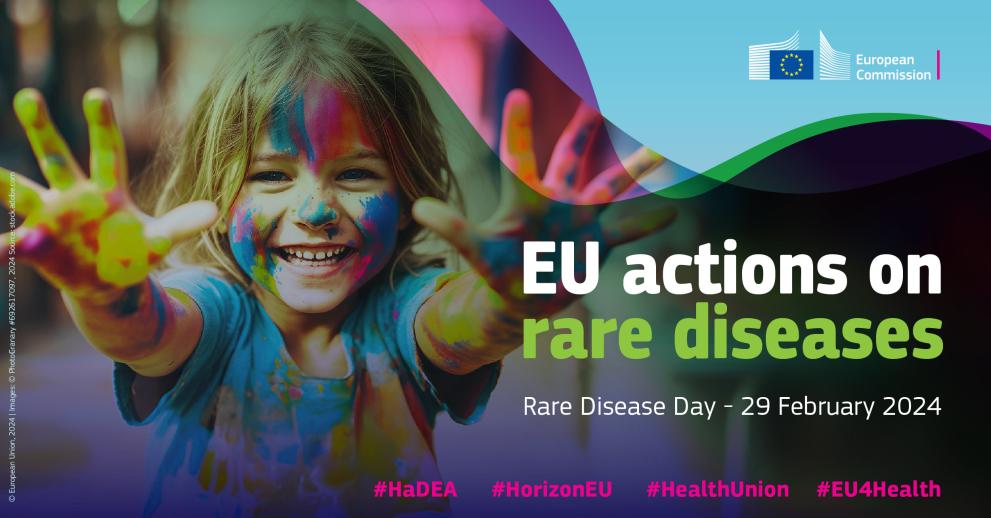
Today marks Rare Disease Day. Rare or low-prevalence complex diseases affect the daily lives of up to 36 million people living in Europe. On this occasion, discover 11 new projects in the field of rare diseases that are funded by the Horizon Europe programme.
-
EURAS aims to develop new effective therapies for rare neurodevelopmental RASopathies, a group of genetic diseases that arise from increased signalling down the RAS cellular transduction pathway*;
-
GEREMY aims to develop the first cardiac gene therapy (GT) for treatment of rare inherited cardiac diseases;
-
MAGIC focuses on accelerating the development of gene therapies and genome editing strategies for muscular dystrophies by creating advanced humanised muscle models and implementing innovative gene therapy approaches;
-
NANEMIAR seeks to develop a bone marrow-targeted mRNA-based gene therapy for congenital anaemia, a group of rare, inherited blood disorders characterised by ineffective red blood cell production;
-
RESTORE VISION is working on developing advanced and repurposed therapeutics for vision restoration in a group of severe rare ocular surface diseases;
-
SIMPATHIC aims to accelerate drug repurposing for rare neurological, neurometabolic and neuromuscular disorders;
-
TheRaCil is working on developing effective new therapies to treat renal ciliopathies**, representing rare genetic disorders arising from primary cilium dysfunction;
-
DREAMS is focusing on discovering treatments for five rare neuromuscular disorders by using artificial intelligence, stem cells and pharmacological screening techniques;
-
LightCure aims to develop a novel approach using targeted photodynamic therapy to selectively target and damage the dysfunctional beta cells responsible for congenital hyperinsulinism (CHI), a rare group of diseases primarily affecting newborns and infants;
-
INVENTS is working on creating a comprehensive framework to improve the evaluation, assessment, and regulatory decision-making processes of new medicines targeting rare diseases, including paediatric rare diseases;
-
ERAMET aims to provide an integrated approach to support developers’ and regulators’ decision-making in the field of paediatric and orphan drug development.
*This pathway allows for the sending of signals from the extracellular environment to the cell nucleus (centre of the cell) where specific genes are activated for cell growth, division and differentiation.
**A group of disorders in the kidneys that are related to the abnormal structure or function of the primary cilia complex, microscopic sensory organelles that can help to remove contaminants from organs or tissue by helping to move fluids over the cell.
Background
Horizon Europe is the research and innovation programme of the EU for the period 2021-2027.
The aims of Cluster 1 ‘Health’ include improving and protecting the health and well-being of citizens of all ages by generating new knowledge, developing innovative solutions and integrating where relevant a gender perspective to prevent, diagnose, monitor, treat and cure diseases. Horizon 2020 (H2020) was the EU’s multiannual funding programme between 2014 and 2020.
Details
- Publication date
- 29 February 2024
- Author
- European Health and Digital Executive Agency
- Programme Sector
- Health
- Programme
- Horizon Europe
- Horizon Europe Cluster 1: Health
- Tags
- EUFunded
- Public health
- Scientific research
